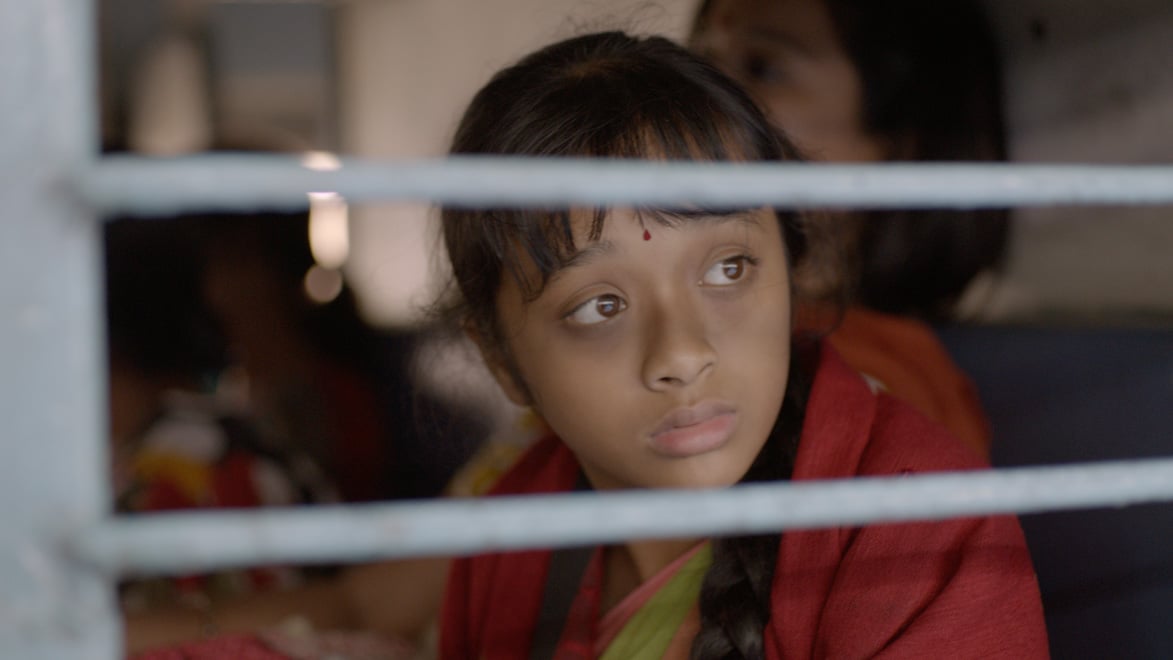Based on a novel of the same name, “Sold” is a movie with a singular purpose: to raise awareness about modern day human trafficking and its victims. Despite its power and timeliness, however, it doesn’t take many risks. American characters are featured offering assistance, but the movie doesn’t take a strong stance on whether their intervention actually improves the lives of human trafficking victims. Ultimately, “Sold” communicates an important message but fails to find an impactful way to convey it.
Lakshmi (Niyar Saikia), named after the Hindu goddess of wealth, is a young girl from a rural village in Nepal. Her parents are having trouble making ends meet, so when a woman offers her a job working for a “family” in India, Lakshmi’s parents jump at the opportunity. Lakshmi leaves her idyllic village and arrives at Happiness House in the city of Kolkata.
Of course, the freedom she associated with the big city is quickly taken from her. Happiness House is a brothel run by a woman named Mumtaz (Susmita Mukherjee) who sweet-talks Lakshmi before locking her in a room alone.
Gender-based violence is at the heart of the movie, so placing women as the leaders of the brothel is unexpected, although men still serve as enforcers and security. Until this point, however, the narrative feels conventional. The naive country girl moves to the big city and realizes the city is flawed too — we’ve heard this story before.
During Lakshmi’s initiation into the brothel, she attacks her customer and attempts to escape. She’s informed that her debt has tripled as a result and is then drugged and tied to a bed for the next night. The repeated rape of Lakshmi is extremely difficult to watch, but essential for the movie’s salient message. Her youth is constantly re-emphasized, especially as she befriends Harish, the son of another prostitute. It’s effectively unnerving to see children in the environment of a brothel, flying kites or filling condoms with water to use as water balloons.
Then, as expected, the Americans get involved. Sophia (Gillian Anderson) is a photographer who oh-so-bravely ventures into the red-light district, where no photography is allowed, and captures a photo of Lakshmi crying for help from her window. Sophia is partnering with a local NGO called Hope House, which provides rehabilitation and education services for victims of human trafficking. She becomes dedicated to freeing Lakshmi and tries to hurry along the NGO’s plans for a brothel raid.
The movie treats Sophia like Lakshmi’s guardian angel, but it’s somehow appropriate that the American only sees the problem through the lens of a camera. This is never directly addressed, so “Sold” fails to take a specific stance on the functionality of American aid.
“Sold” is a mixed bag. Yes, the plot is heartbreaking at points. The film certainly raises awareness about human trafficking. Niyar Saikia leads a cast full of strong performers. But while “Sold” achieves its singular, inspiring goal, it feels like the film misses some opportunities to do more, to answer the pressing question of “What next?”
“Sold” opens Friday, April 15 at the Sundance Kabuki in San Francisco and the Camera 3 in San Jose.
Contact Reed Canaan at rcanaan ‘at’ stanford.edu.
